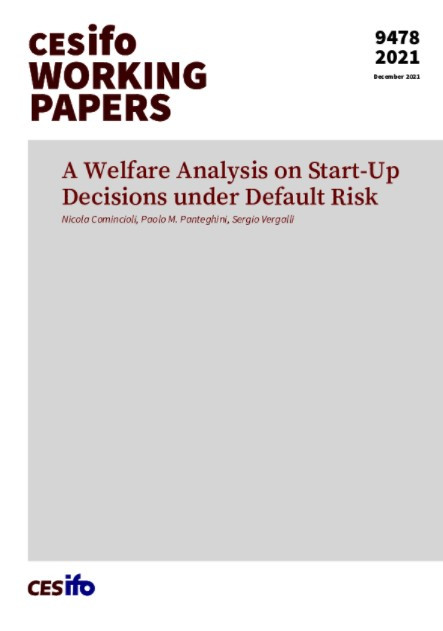A Welfare Analysis on Start-Up Decisions under Default Risk

Data
02.02.2022
02.02.2022
Autori
Nicola Comincioli (University of Brescia); Paolo Panteghini (University of Brescia); Sergio Vergalli, (University of Brescia)
Codice JEL
H250, G330, G380
H250, G330, G380
Parole chiave:
Real Options, Business Taxation, Default Risk
Real Options, Business Taxation, Default Risk
JOURNAL
CESifo Working Paper No. 9478 | CESifo, Munich, 2021
CESifo Working Paper No. 9478 | CESifo, Munich, 2021
This short article studies the tax effects on a start-up investment decision under uncertainty. Since the representative firm can decide both when to invest and how much to borrow, the distortive effects are twofold. We thus show that the deadweight loss (namely, the ratio between the welfare loss and tax revenue) ranges from 25 to 32%, whereas mature firms face a lower distortion (as shown by Comincioli et al. (2021) the maximum deadweight loss is about 25%).
